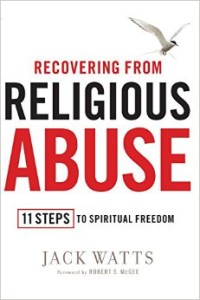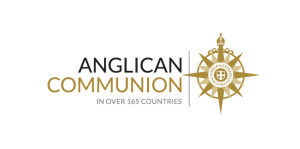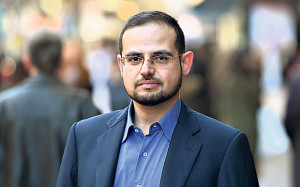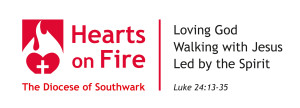In the Church Times this week and elsewhere online, a row has blown up about the future of theological education for would-be clergy in the Church of England. The cost of training men and women to become clergy is not inconsiderable and it is normally borne by the central church funds. Back in the 60s when I received my training, the cost of vocational training was met by central government through the grants system. People like me could cheerfully clock up five years residential training as a full-time student at university and theological college paid for by the long-suffering tax-payer. I even succeeded in persuading my local educational authority, through whom the funds were mediated, to let me have four months absent from theological college, at a course in the World Council of Churches Institute in Switzerland. Such largesse and generosity to students, theological or not, has gone, never to return.
This basic pattern of training at residential colleges has continued for would-be clergy, while many others have done training at local centres in a kind of night-school structure. The latter scheme has proved popular with individuals who, for financial reasons, have to keep working while they train. The cost to married students, where two parents may have to give up jobs to migrate to a residential theological college for up to two years, is just too high. Although there are increasing numbers of unmarried candidates in their twenties coming through the system, there has been in the past an assumption that most clergy candidates will start training after some years in another profession. These older married candidates are expensive to train when they opt for residential training, particularly if they opt to study for a university degree at the same time. This latter option, as we all know, has become horrifically expensive in the past few years.
At the beginning of this year, the Church of England, responding to a simultaneous increase in the number of clergy in training and a massive rise in costs, produced a report. This report proposed devolving all decisions about clerical training to the individual dioceses. The dioceses would make a decision as to whether the candidates would be allowed to receive residential training or be trained ‘in-house’ with the resources that the dioceses can muster. On Friday last a letter was published in the Church Times questioning the wisdom of this policy. Various points were raised by the 17 signatories, all of whom are involved in theological study and research at the highest level. The complaint was that the dioceses would find it expedient, for reasons of expense, to opt for the cheapest option in most instances. This would have a knock-on effect on the centres of theological excellence as fewer and fewer students entered them. The norm of five years training in the 60s would become the preserve of the few and immensely privileged.
The debate, no doubt, will carry on for months to come and a debate is to take place in the Church of England General Synod in February 2016. Having set out in summary this report about clergy training, I want to express my own concerns within this debate that relate to the themes of this blog. The first issue to note is that the depth of theological education offered to many ministers in the independent part of the church is often very superficial. When I was talking to people in the 90s about the qualifications required of ministers in one branch of a Pentecostal group of churches, I was told that a man could be appointed as a Pastor in charge of a congregation after six months non- residential training. In that period of time, I reckoned, one could be taught a rote system of doctrine, buffered by a number of ‘proof texts’. This would enable the candidate to produce sermons which would cover a number of well worn themes such as conversion, receiving the Holy Spirit and the task of ‘witnessing’ to Christ on the part of church members. While the Church of England will never allow individuals to be ordained after such a cursory training, the fact remains that it is easier and quicker to train someone where the theological system being taught is fixed and unchangeable. The broader Anglican tradition, embracing as it does both protestant and catholic teaching, is more nuanced and complex. It will, for example, want to present a variety of approaches to single passage of Scripture, probably involving some knowledge of the original languages. Such learning does, however, require a higher level of educational sophistication. This educational sophistication, without beating about the bush, takes time and is expensive to acquire. How much easier, particularly if the demand is there, to educate the clergy to teach according to rote? It is said that many of the people in the congregations want to deal in certainties as far as the Christian faith is concerned. Why not provide them with a clergy (cheaply trained!) who will oblige them with these answers? Wrestling with questions about faith and doubt is too expensive for the church of the future. Learning to understand the point of view held by someone else is also too expensive for future educators to pass on to their pupils. The binary world, the world of facts can be efficiently and cheaply handed on.
The second problem that I foresee in delegating theological training to the dioceses is that the Dioceses themselves may well, if they so choose, become monochrome in what they offer their ordinands. One diocese, which has to be nameless, has already decided that it is ‘evangelical’ and want all its future clergy to be entirely focussed on mission at the expense, one suspects, of theology. The care of the sick and the dying will thus take second place to a constant drive to make new disciples. The churchmanship that is implied in this approach will be clear to my readers. Of course this approach has its place within the total range of church practice, but it becomes dangerous if it is the sole model available in an entire geographical area. It is instructive to see what happens when a single theological vision takes over a diocese in the Anglican church. This is what has happened in Sydney Australia. Over several decades the Anglican Church has been taken over by a single theological vision, an extreme Calvinist perspective. This ‘take-over’ was achieved by insisting that no priest could work in the Diocese unless they had attended the diocesan theological college, Moore Theological College. Thus the liberal parishes have gradually lost their distinctive ministries by no longer being allowed to appoint clergy who follow their vision. The whole diocese is almost totally monochrome and, as I have said in previous blog posts, it sees itself as the model for Anglicanism world-wide.
The unnamed Anglican diocese I mentioned above, could also eventually become a monochrome Calvinist church within a church having prevented any of its ordinands from going to an academic institution for training. It will perhaps take some forty years for this process to be completed. At the end of this time, with no academically trained clergy in post, the whole diocese will no longer be recognisable as part of the wider Anglican set-up, with its tolerance towards many shades of theological opinion. Prompted by the ‘success’ of this single vision, it might then seek to impose this view on the entire church, as Sydney is trying to in Australia.
I have managed to write an entire post without so far mentioning the word ‘abuse’, but perhaps my long-term readers will realise that I see a church in one flavour of churchmanship, where debate and disagreement are not tolerated, as being an abusive scenario. Where there is no possibility of disagreement or debate in religious affairs, there we find intolerance, authoritarianism and eventually abuse.





